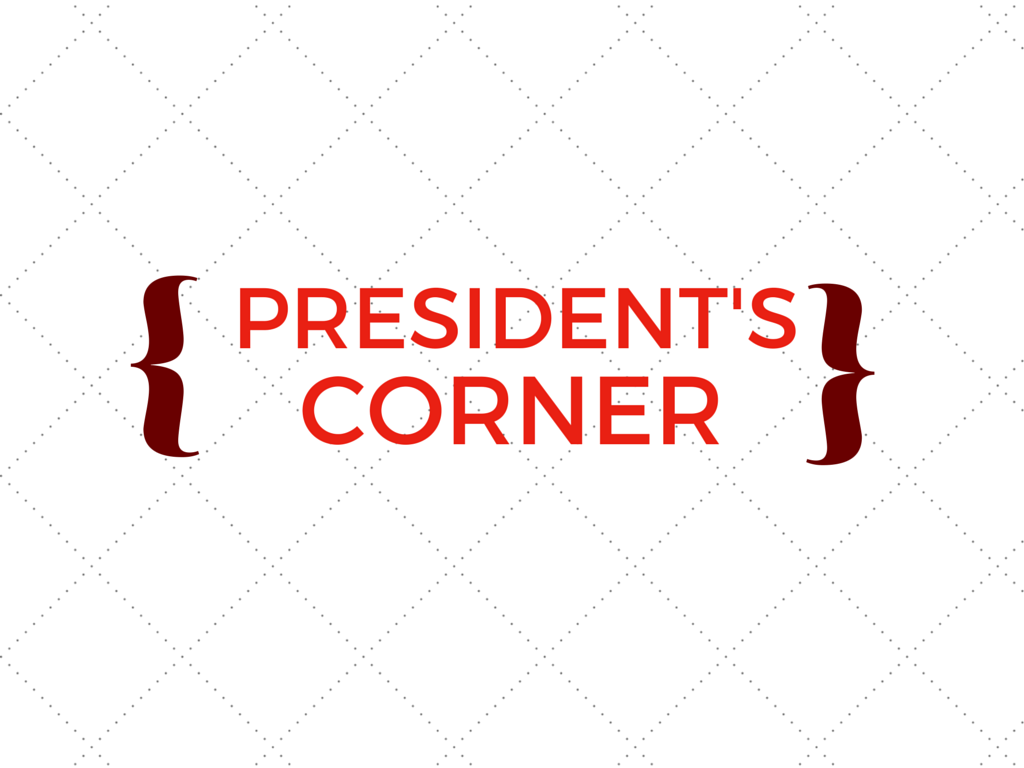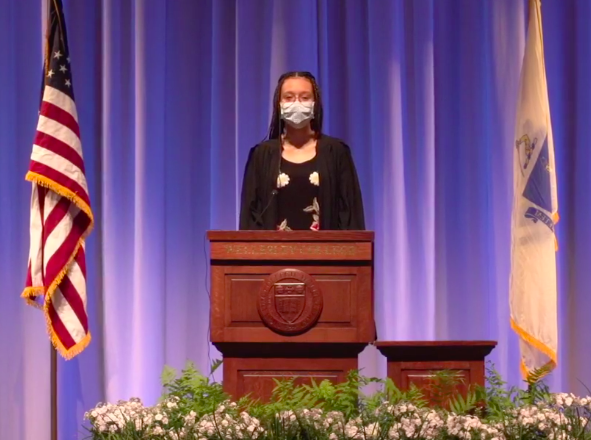Hello everyone,
As Wellesley’s green lushness gives way to speckled autumnal trees and chilly air, I’m constantly struck by how utterly beautiful our college is. In its scenery and, especially, in its people.
This college holds a special place in my heart because of the people. Here, you’ll find no shortage of care. I’m reaffirmed of this every time I realize truly how much students, faculty and staff put into what they do, whether it’s running from committee meeting to committee meeting, sharing rawness and personhood on an open mic stage, regularly extending office hours to accommodate a few more students, sitting in the Hoop on Friday afternoons, sharing dreams of solidarity and advocacy or simply contributing precious time and thought to the various communities and relationships in which we are all a part.
It’s when we contemplate just how much of ourselves we regularly give to one another and to these various parts of Wellesley that it becomes much more imperative that we do our best to assume good faith—or, at the very least, an absence of bad faith. It’s so important that this exercise take various directions: namely, from students to administrators, administrators to students; faculty to students, students to faculty; and faculty to administrators, administrators to faculty but also between students, faculty and administrators.
This effort to be empathetic and generous in our assumptions where we see our own good intentions in others—and, in bad cases, good intentions muddled by terrible execution or undiversified thought—stands to add so much more to our community, its atmosphere and its culture of involvement than assuming bad faith might have in the past for our community. Too often, we chalk up people’s decontextualized actions, decontextualized words, varying levels of knowledge or differently weighted priorities to something that is insidious, planned and anti-Wellesley. But when we take the time to critically acknowledge how much these same individuals—and these individuals could be anyone: administrators, students and faculty—have willingly offered themselves to our community in other ways, the story becomes more complex and more deserving of consideration and perspective sharing.
The story is further complicated when we consider how our involvement with different parts of Wellesley College might necessarily change how we advocate for the good of Wellesley. Someone concerned with our endowment might be more inclined to list the “Wellesley good” as intergenerational equity—making sure there’s enough of the endowment to last multiple generations of students. Administrators in the curriculum committee might worry about how the average graduating GPA conveys students’ academic efforts to grad schools and how students might fare in applying to programs. Faculty members might be concerned about academic freedom—balancing open inquiry with conscientiousness and sensitivity. Students might be worried about how others of varying educational, financial or identity backgrounds are institutionally supported—and what that might look like for students’ success and mental health at Wellesley.
These intersecting, interlocking parts of Wellesley are all parts that we are better for having. We are undoubtedly better having people at the college who can be experts in and defenders of different aspects of the “Wellesley good”—students, faculty and administrators alike. We are better off when we can ensure the open, productive sharing of expert perspectives and knowledge—of which all of us, students, staff and faculty, have so much.
It’s crucial, therefore, to recognize that these are all facets of Wellesley—that no one part is any less Wellesley and that “Wellesley good” really means ensuring that everyone can learn a bit more about how vast and expansive the “Wellesley good” truly is.
In this regard, I hope we can all be less inclined to devalue rather than preserve and encourage the intra/intergroup relationships that tie our community together.
I hope that in these coming weeks and months of the year, we can remind each other and ourselves of this and be as generous as we can of our assumptions of others and their intentions as they fit into this small community of ours.
And aside from this, I have two short announcements:
Our Student Organizations and Appointments Committee (SOAC) Coordinators are still on the look-out for student applicants to a number of administrative committees within the College. This is undoubtedly one of the easiest ways to get involved—especially as an underclass student—in crucial administrative decisions as they relate to topics like admissions, curriculum and academic policy, sustainability, campus renewal, financial investments, library services and more. What’s more, College Government (CG) and the student body at large rely on these appointed volunteer representatives to ensure that the lines of communication remain open between all community parties with a vested interest in bettering student life on campus. If you’re interested in applying, please reach out to [email protected] for a full list of SOAC-appointed Committees that are still in need of one or more student representatives (there are many!).
This semester, Cabinet will be hosting our second ever Ideafest—a crowdsourcing, hackathon-esque project started by last year’s College Government President to encourage community-oriented problem solving using CG-funded, student-developed initiatives. As the weeks unfold, I’ll be coming to you with even more details in addition to offering a few twists on last year’s original that will hopefully bring more stakeholders to the table and help push along even more relevant initiatives that are determined by students, for students.
Until next time,
Adeline







